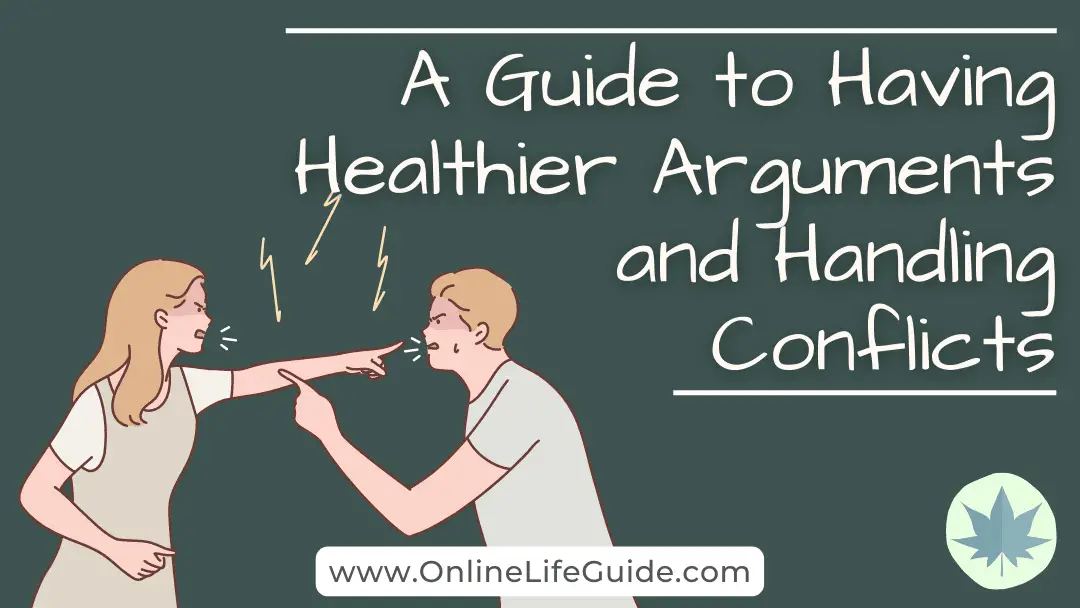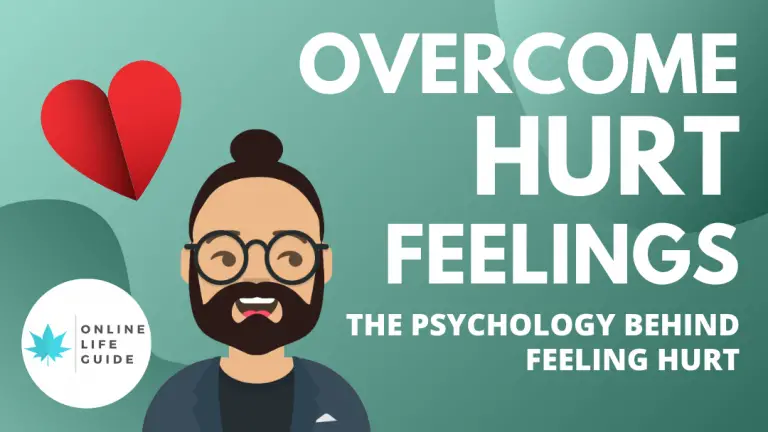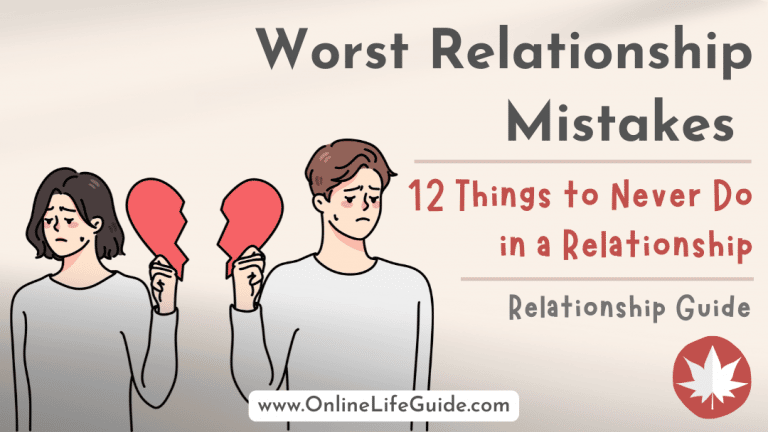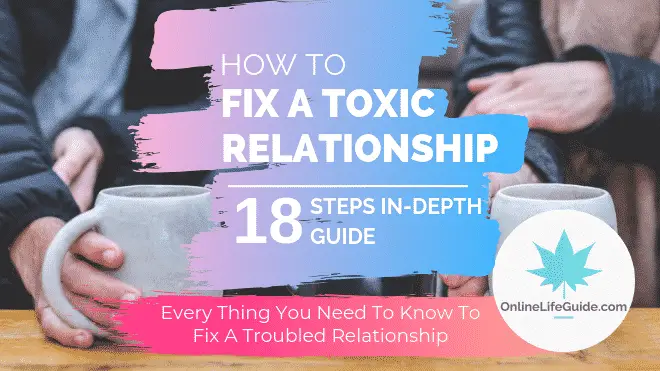A Guide on How to Have Healthier Arguments and Handle Conflicts

When it comes to disagreement, many of us usually try to avoid it because we don’t want to start an argument and then disturb our mental peace for the rest of the week.
When we do get into a conflict, it continues to haunt us for days or even weeks as we think back on it and work ourselves up over what we could’ve done to prove our point.
Since we know how draining it would be to engage in a disagreement, we try to avoid it at all costs by not speaking up or by becoming too agreeable even when we don’t want to.
On the other end of the spectrum, when we do engage in an argument, things go out of control and all hell breaks loose. The disagreement turns into a fight, impacting our relationship with the other person.
Often conflicts are better confronted and resolved early on and in productive ways (which we’ll look into). If we keep trying to avoid and ignore the inevitable conflicts, we end up losing patience, and boom, an emotional outburst ensues.
Now, of course, most of the time we must let go of the urge to engage in a conflict over trivial matters as it’s not worth spending our precious mental and emotional energy over small disagreements.
However, there are times when we must address the elephant in the room and have thorough communication with the person whom we disagree with or who disagree with us.
Disagreement is a sign of how diverse we humans are in our thoughts, beliefs, and convictions.
There are usually two sides to dealing with disagreements and conflicts, and I’m sure you’re seeking at least one of them when you landed on this article.
One side deals with how to get your point across to someone who disagrees with you.
The other side deals with how to resolve the conflict and come to a harmonious conclusion.
We will be looking into both of these aspects in this guide from a psychological perspective, so hang in there!
Analyze the Underlying Motivation Behind the Disagreement
You might be wondering why I used the word “motivation” for disagreement. Strangely, many disputes aren’t based on conflicting facts or opinions, but on ego and emotions.
People can disagree just to assert their dominance in a situation. Some people view being agreeable as a sign of weakness or submissiveness.
Such people show resistance and signs of insecurity even when someone is talking about something that they internally agree with and know that it’s the right thing.
Another reason for disagreement could be some past uncomfortable experiences with the other person. When we are arguing with someone we’ve known for a while, the extent of agreeability or conflict is hugely influenced by the kind of relations we’ve had with them.
Usually, with people who click with you on an intellectual level, you’ll find it a lot easier to handle disagreements and come to a positive resolution, as compared to someone with whom you’ve had friction in the past or someone who is a complete stranger.
Don’t forget to check in with your own subconscious motive and intention for disagreeing. Are you disagreeing and engaging in conflict because of some underlying frustration about something or built-up resentment towards the other person or maybe because you’re feeling insecure?
Avoid Taking the Conflict Personally
Disagreement can quickly turn very messy and become a hopeless cause when both sides start to take it personally and process the conflict emotionally instead of being rational.
Now, there are times when emotions will be involved in a conflict, especially when it comes to close relationships. In such scenarios, there should be at least one person between the two who takes a more stable and sensible approach to contain the conflict and resolve it without dragging it endlessly and turning it into something hurtful.
Since it’s you who is reading this guide, I’ll encourage you to take that position of being the bigger person during a conflict and detach yourself emotionally before you analyze the situation.
If the disagreement is about a personal issue between the two of you, instead of going into defensive mode immediately, listen to the other person openly and take what they’re saying as feedback. Acknowledge their feelings and opinions, and make sure they feel heard and understood (genuinely of course).
Telling the other person what they are feeling is wrong or untrue is only going to put them further into a defensive state and intensify the conflict.
Come to Common Terms
It’s important to develop some sort of rapport between you and the other person if you want to resolve the conflict successfully. That doesn’t mean agreeing with everything they say or trying to force rapport building, but it can pay off to invite the other person to come to the things you both agree upon.
“Come to common terms as between us and you”
[Quran 3:64]
Coming to similarities instead of staying stuck on the differences can lower the defensiveness on both sides. It will create a sense of understanding and connection between the two of you that even though you live on opposite sides of the river, you share the same water.
Once you both reach a place of agreement at some level, you can approach the differences and disagreements from a more positive outlook and a proactive mindset.
Stay Within Boundaries and Limits During Arguments & Conflicts
Conflicts often turn into fights and toxic relationships when we are not mindful of the boundaries that should not be crossed no matter how big the conflict is.
Notice the early signs of things starting to go south and know when to stop arguing. If the disagreement is turning into personal atta cks, it’s usually not a good idea to take the conversation further as it will probably turn toxic.
I’m NOT suggesting to storm off. If you think that it’s better to drop the conversation because you feel that you or the other person is getting emotionally charged up, do it in a way that will diffuse the situation not make it worse. Come on, you know better.
Tell him/her that “This might not be a good time to have this discussion. Let’s just relax for now and let’s meet up for coffee in the afternoon (or any other time). We’ll discuss it then.”
This leads us to the next point, and that is…
Be Selective of the Time and Place to Engage in an Argument
Be mindful of the sensitivity of the conversation and the occasion or place you are at. No matter how right you are in your disagreement, sometimes it isn’t the place or time to engage in a conflict.
Sometimes you just gotta be patient and let it pass.
I’ve seen people getting into arguments at funerals several times (even at the funeral of my father) which is utterly and absolutely rude to people who just lost someone.
Apart from that, we’ve all seen couples or families (or been one of them ourselves) who just start arguing in public or at family gatherings without giving any regard to their surroundings.
We all know how cringe-worthy and uncomfortable that is as a third person.
Be Respectful Towards the Other Person’s Opinions and Feelings
We often forget that all tough all of us humans belong to the same species, every individual is different.
“Indeed, your efforts are diverse.”
[ Quran 92:4]
Every one of us has had different experiences, upbringings, successes, setbacks, knowledge, and mental/emotional capacity, all of which shape how we think, perceive, and experience the world.
We are essentially designed to disagree and be different. Conflicts are bound to happen. The thing that matters is how mindful we are of the fact that everyone has the right to have their opinions and feelings.
“O mankind, We have created you male and female, and made you into races and tribes, that you may know one another.”
[Quran 49:13]
Telling someone that their opinion is untrue or that they shouldn’t feel the way they are feeling is not being respectful of their individuality.
Yes, you might disagree with their opinions or even their feelings, but the thing that matters is how you handle your urge to show disagreement with their views or feelings.
It will save us a lot of unnecessary trouble if we simply acknowledge and genuinely listen to what the other person thinks and feels. They will feel heard and respected, and probably will be more open to considering your perspective once they’ve had the chance to express themselves fully.
Be Open to Consider Other Perspectives
None of us can claim that they are perfect or that all their perspectives and opinions are correct (well there are quite a few people in the world who actually do, those we call delusional).
Let’s be honest, we’ve all fallen into this delusion of being right so many times in life only to realize later on how silly our ideas were or how we misread a situation or had an assumption about someone that turned out to be false, haven’t we?
Those are indeed humbling experiences. All of a sudden we realized how wrong we were in perceiving something. There have been times when we even got embarrassed by ourselves for having wrong assumptions.
And yet, many of us keep on repeating those same patterns over and over again.
Intellectual humility is something that could solve most of our personal and professional problems and conflicts.
But what is intellectual humility?
It is being mindful of the fact that the world that you know, is based on your own individual perceptions and life experiences. Most of the things that we experience and most of the opinions that we hold are biased.
It is about realizing that what we perceive or believe, might not be the actual truth.
It is being open to considering other people’s perspectives and respecting the fact that they have their own experiences in life.
It is having the flexibility to adapt to change and welcome better ideas while letting go of the previous ones that aren’t as beneficial.
Try Not to Let Your Ego Get the Best of You
Our ego is subtly at play at all times making our life, our matters, and our relationships harder than they need to be.
We are not inclined to accept our mistakes or accept the possibility that the other person might actually be right because that inner egotistical voice whispers into our ears:
“It will make you seem weak if you accept your fault”
“It will give the other person power over you if you let them win this argument”
We’ve all been there at some point, haven’t we? We cannot completely shut off our ego as it’s an integral part of our existence, and it’s not all bad. In many instances, it serves a positive purpose in our lives.
What we can do is pay more conscious attention to the workings of our ego and stop it in its tracks when we find it overpowering our rationality and intellectual honesty, which that is the next point of this guide…
Practice Intellectual Honesty
Intellectual honesty is the child of intellectual humility. When you are open and considerate of the fact that you can be wrong, or the other person can have a better idea, perspective, or point, all you need then is some courage to accept that “yeah, not gonna lie, you gotta point there”.
Being intellectually honest means that you analyze the argument or conflict from a third person’s perspective. When you pull yourself out of the equation, you minimize the emotional and egotistical bias and come closer to the actual reality. Now you operate from a position of a seeker of truth rather than someone who’s trying to win an argument.
You’ll begin to notice that practicing this mindset alone will help you resolve conflicts a lot quicker and deal with disagreements in more harmonious ways in your personal and professional relationships.
Final Thoughts
Talking to someone you disagree with in a harmonious and productive manner is a skill and every skill needs practice and refinement.
Whenever you get into an argument with someone, notice your own patterns first, and then notice how the other person reacts to your patterns. Take feedback and notice areas where you need improvement and things that you must avoid during conflicts.
Whenever you feel charged up during a disagreement, take a deep breath, relax your tensed-up body, and tap into your senses. Keep the points discussed in this guide in your mind and try to practice them as much as you can.
If you found this guide to be helpful, please share it with someone who might also need it. Don’t forget to bookmark it so it’s easier for you to come back to it whenever you need a reminder.
As always, take good care of yourself and I’ll talk to you in the next one!








